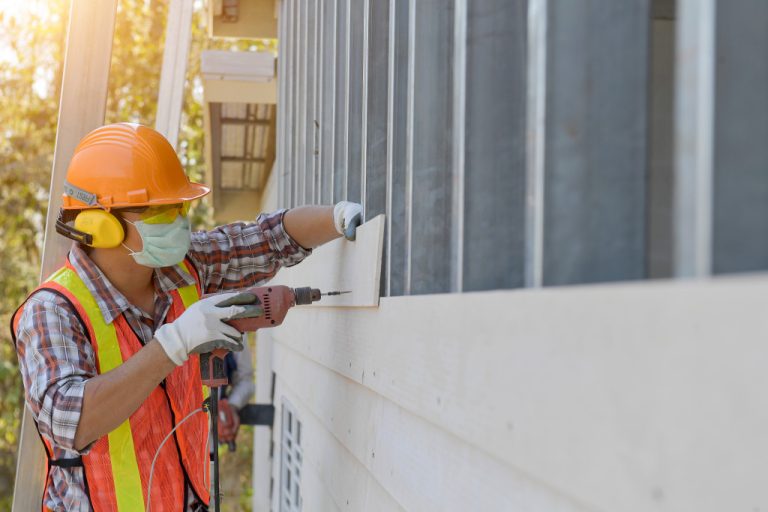- A skilled and adaptable workforce is crucial for executing construction projects efficiently and maintaining high-quality standards.
- Investing in quality construction equipment enhances productivity, safety, and a firm reputation in the industry.
- Adequate financial resources are necessary to manage overhead costs and project budgets and ensure the firm’s profitability.
- A small home construction firm can thrive in the competitive residential construction market with the right assets.
Starting a small residential construction firm can be profitable, considering the continuously growing demand in the housing market. According to the U.S. Census Bureau, in 2021 alone, the value of overall construction put in place reached nearly $1.6 trillion. Moreover, the forecast from Statista projects the market value of new residential buildings in the United States to reach approximately $899 billion. A small firm well-positioned in this market that can effectively manage overhead costs and construction project timelines stands to share in this sector’s profitability.
However, starting a small construction firm requires heavy planning, specifically in the assets you must acquire to ensure success. Here are a few essential assets you need for your small home construction firm:
Skilled and Experienced Workforce

Your workforce is the backbone of your construction firm, making it the first asset to secure. Skilled and experienced construction workers can bring your architectural plans to life with precision and efficiency. Moreover, a team knowledgeable about the latest construction techniques and safety regulations will help you maintain high-quality standards and avoid costly penalties and project delays.
When hiring your team, consider the following factors:
- Experience and Skills: Verify that potential hires have relevant experience in residential construction. They should possess the necessary skills for their role, whether masonry, carpentry, or electrical work.
- Certifications and Licenses: Ensure your team members hold any necessary certificates or licenses. These validate their competence and commitment to their trade.
- Reliability and Work Ethic: Ask for references to gauge each candidate’s reliability and work ethic. Your team should be committed to meeting deadlines and maintaining a safe work environment.
- Adaptability: The construction industry is ever-evolving. Therefore, your team should be adaptable and open to learning new techniques and technologies.
Remember, a well-rounded and competent team will help deliver quality homes and contribute to building a reputable and successful construction firm.
Quality Construction Equipment

Quality construction equipment is vital to running a successful home construction firm. This range of tools and machinery enables your team to execute the tasks at hand efficiently and safely, thereby increasing productivity and ensuring the quality of your work. High-grade equipment is designed for durability and reliability, reducing the chances of malfunctions that can lead to costly downtime. Furthermore, investing in such equipment is a clear sign of your firm’s commitment to excellence, which can enhance your reputation in the industry.
Here are five categories of tools and equipment that are indispensable for a small home construction firm:
Hand Tools
The most basic construction tools are hand tools, including hammers, screwdrivers, pliers, and saws. These tools are crucial for various tasks, from assembling equipment to fine-tuning finishes.
Power Tools
Power tools offer increased efficiency and precision for heavier tasks. This category includes drills, circular saws, and power sanders, which can expedite work and enhance the quality of your projects.
Earthmoving Equipment
For site preparation, you will need earthmoving equipment such as bulldozers, excavators, and loaders. These machines can clear and level the land quickly, making it ready for construction.
Lifting Equipment
Lifting equipment, such as cranes and forklifts, facilitates the movement of heavy materials across the construction site. This speeds up operations and reduces the risk of injuries that can occur from manual labor.
Safety Equipment
Lastly, a construction firm must invest in safety equipment to protect its workforce. This includes helmets, safety glasses, high-visibility vests, and fall protection gear. High-quality winches and hoists will also be critical, especially when construction projects require workers to be at great heights. Safety should always be a top priority; investing in the right equipment is vital.
Remember, choosing quality over cost when investing in equipment is a decision that will likely pay off in the long run, contributing to the growth and success of your small home construction firm.
Financial Resources
No business can survive without proper financial resources. This is particularly true for small construction firms, where overhead costs and project budgets must be carefully managed to ensure profitability. Therefore, securing adequate funding is crucial for your firm’s success. Some potential sources of financing include:
- Personal Savings/Investments: Using personal savings or investments saved from previous ventures can provide an initial infusion of capital to start your construction firm.
- Bank Loans: Banks offer various loan options for small businesses, including business loans, lines of credit, and equipment financing.
- Credit Cards: While it may not be the most desirable option due to high interest rates, credit cards can provide a quick source of financing for small expenses.
- Crowdfunding: Recently, crowdfunding has become increasingly popular to raise business funds. This involves obtaining small contributions from many people through online platforms.
Before choosing a funding source, consider the terms and interest rates offered to ensure they align with your business goals and financial capabilities.
Final Thoughts
Starting a small home construction firm may seem daunting, but you can set your business up for success with the right assets. Remember to prioritize acquiring skilled and experienced staff, quality equipment, and proper financial resources. These assets will help you complete projects efficiently and contribute to building a reputable brand in the competitive residential construction market. With hard work, dedication, and a focus on continuous improvement, your small home construction firm can thrive and contribute to meeting the growing demand for quality homes in the United States.







